Animal Cruelty
When people think of cruelty, they often think of a person starving or beating an animal. In other words, they think of actions that are against the law. They may also think of things done by other nations, such as whale hunting, bear farming, bull fighting, or clubbing seal pups.
Certainly all of these actions are cruel,
but animals also suffer much closer to home.
Mostly people don't think about everyday suffering!
Animals killed for food, battery hens, laboratory animals, animals that are trapped, poisoned, or hunted for sport. These actions aren't illegal, but they cause suffering to more individuals than people who starve or beat their animals.
So what is cruelty?
In what ways do animals suffer?
Pain.
All animals with backbones (vertebrates) feel pain like we do. Hooking fish, fire branding cattle, catching animals in steel-jaw traps, cutting tails off lambs and beaks off hens, all cause pain.
Stress and Fear.
Vertebrate animals feel anxiety like we do. Transport is very stressful for animals, especially live export overseas. Being pulled out of the water and left to suffocate causes great stress to fish. Dairy calves taken from their mother after 1 day and trucked to slaughter at 1 week of age suffer greatly.
Frustration.
Animals need more than food and water for their well-being - they also need to be able to carry out the behaviour that is natural to their species. Otherwise they become frustrated and may develop abnormal behaviour, just like a mentally disturbed person. Signs of frustration can be seen in battery hens, pigs in tiny stalls, rabbits in laboratory cages, foxes and mink on fur farms, and some zoo and circus animals.
Animal Cruelty in...
Factory Farms
Animals in factory farms are treated as machines, not sentient beings who feel pain and emotions just like dogs or cats. Their welfare is disregarded in the name of profit, and they suffer horrendous conditions in mind boggling numbers. On standard commercial egg farms, hens are kept in such small cages that they cannot even lift one wing. Factory farmed animals have their beaks, tails, horns and genitals chopped off with no anesthesia. All animals on factory farms are kept intensively and painfully confined. At the end of their miserable lives, they are all sent to violent commercial slaughterhouses where stunning procedures often fail, and the animals are dismembered or skinned while still conscious.
..
In order to boycott factory farm cruelty altogether, as well as the devastating effects of factory farming on the environment and human health, compassionate people all over the world are going vegan.
Laboratories
Vivisection is the cutting into or dissecting of a live animal. Billions of non-human animals have been burnt, crushed, sliced, electrocuted, poisoned with toxic chemicals, and psychologically tormented in the name of scientific curiosity. What have we learned from all of this suffering? That animal research is inherently unethical, inevitably wasteful, and wholly unreliable. The U.S. squanders approximately $18 billion per year on animal experiments, much of which is funded by taxpayers, even though alternatives are less expensive and can be used repeatedly. And what do we get for our dollars? "Too much suffering for too little knowledge.
"
Fur Farms
More than 45 million animals worldwide, including raccoon dogs, rabbits, foxes, mink, and chinchillas, are raised in cages and killed each year for their fur. Not only are cage-raised animals killed inhumanely, but they suffer from numerous physical and behavioral abnormalities induced by the stress of caging conditions. After spending their short lives in squalid conditions, animals raised on fur farms are killed by cruel methods that preserve the pelt, such as gassing, neck-breaking and anal electrocution.
Some are skinned alive!
Animals living in the wild
are the unseen victims of human exploitation.
Their lives are cruelly cut short for the sake of greed, vanity, and the so-called thrill of sadistic bloodsports
Every form of violence and cruelty imaginable is inflicted upon wild animals and yet the public is largely unaware of these abuses.
Trapping
Millions of wild animals, including bobcats, coyotes, foxes, lynx, raccoons, and wolves, suffer and die in traps each year. Countless dogs and cats, deer, birds and other animals—including threatened and endangered animals—are also injured and killed each year by the indiscriminate traps. Traps, including steel-jaw leghold traps, body-gripping traps, and wire neck snares, are inhumane devices that inflict great pain and suffering.
Hunting
Although it was a crucial part of humans’ survival 100,000 years ago, hunting is now nothing more than a violent form of recreation that the vast majority of hunters do not need for subsistence.
Many animals suffer prolonged, painful deaths when they are injured but not killed by hunters.
Hunting disrupts migration and hibernation patterns and destroys families. For animals like wolves, who mate for life and live in close-knit family units, hunting can devastate entire communities. The stress that hunted animals suffer—caused by fear and the inescapable loud noises and other commotion that hunters create—also severely compromises their normal eating habits, making it hard for them to store the fat and energy that they need in order to survive the winter.
Posted By: One Voice






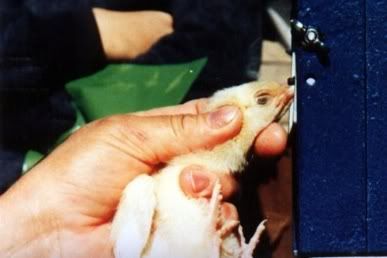
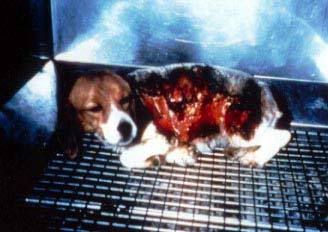
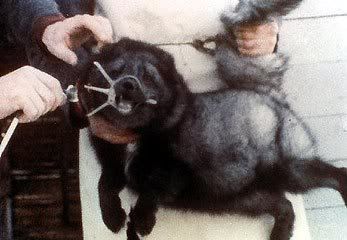
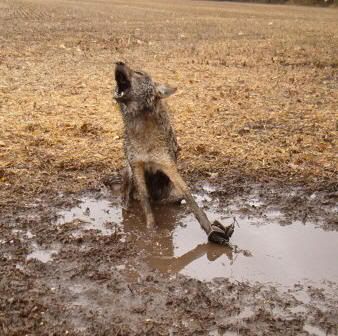
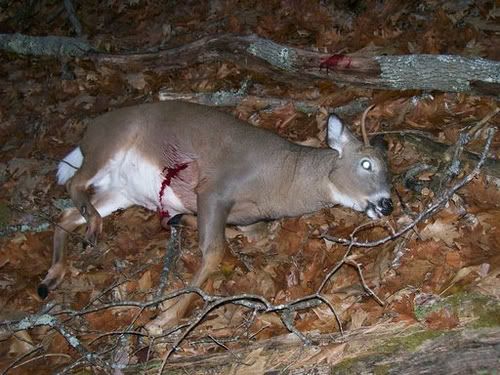









0 Comments:
Post a Comment